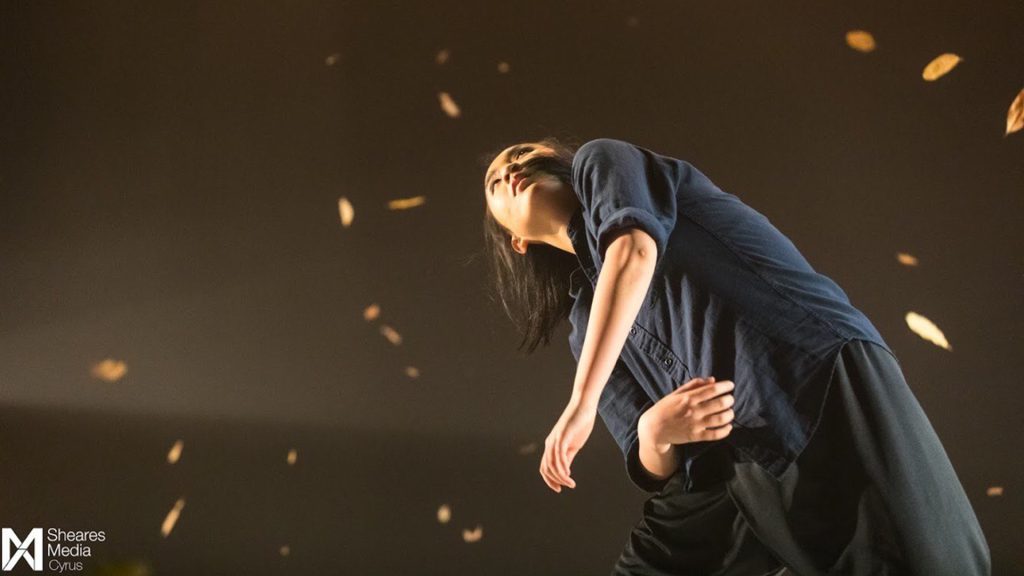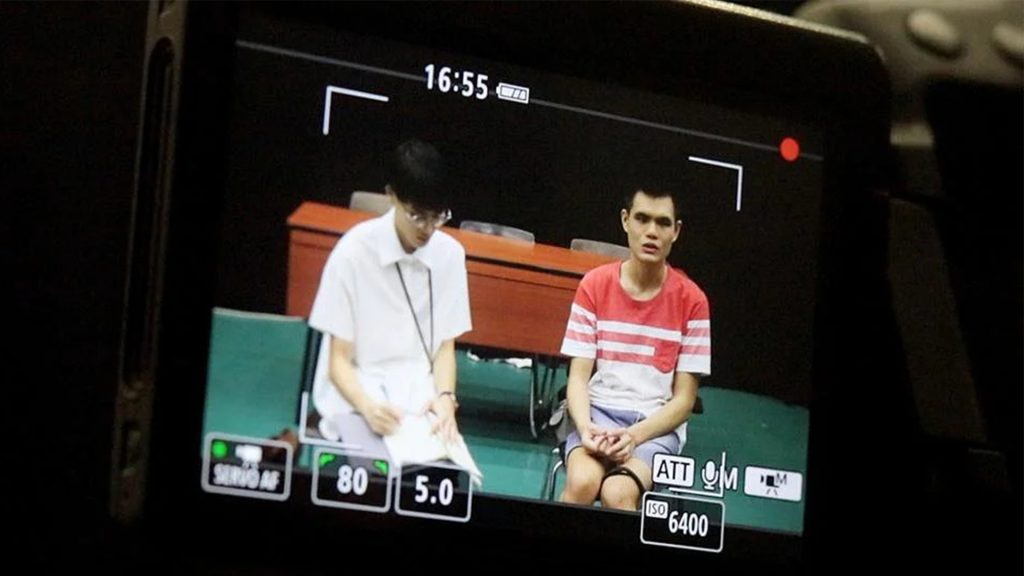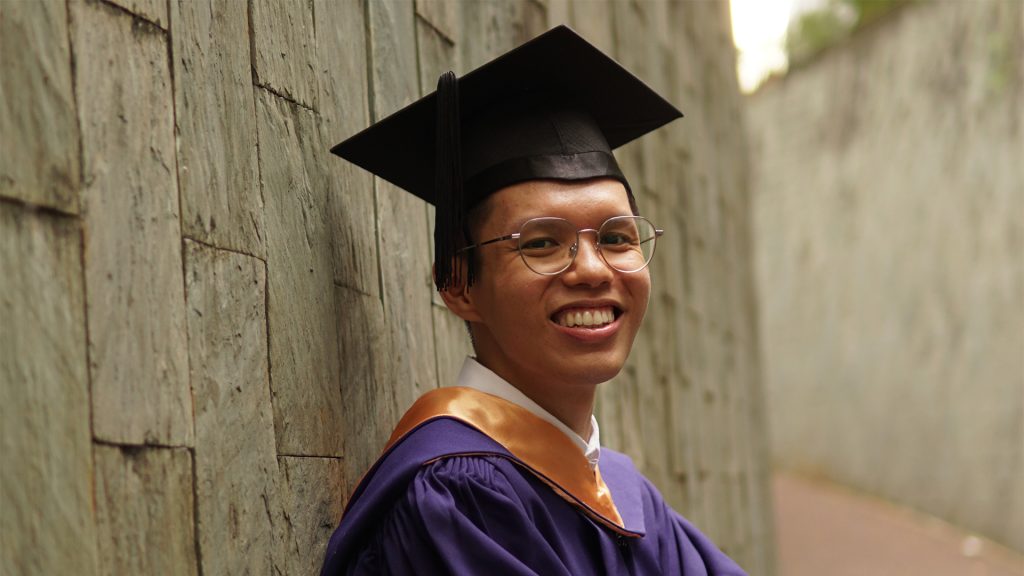Centre Stage – Student Leaders in the Performing Arts Shine a Spotlight on Social Issues
July 14, 2022

Art can help shape and renew culture. It offers a space for creativity and expression, surfaces issues that are difficult to talk about, and can effect change in society. Three graduates share their thoughts on their leadership in the performing arts, navigating the challenges of COVID-19, and how the performing arts can open doors to conversations on mental wellness, environmental issues and inclusivity.
Connecting Movement with Mental Wellness
For 23-year-old Coco Yau, dance is inseparable from her identity. The Psychology major was only six when she went for her first dance class. “My dad told me I could one day be like the dancers in High School Musical,” she chuckled.
Coco nurtured her interest, building foundational skills in jazz, Chinese and modern dance. “Before university days, dance to me was very performative. You usually work towards a choreography or competition piece,” she said. That perspective changed when Coco joined NUS Dance Synergy, opening her eyes to a new dance style.
“The way that NUS Dance Synergy teaches contemporary dance is extremely raw. It brought me out of my comfort zone because I was so used to structured techniques. They encouraged me to be comfortable in my own skin and to feel, which was intimidating. That was the first time I tried to have conversations with myself through body movement,” said Coco.
Coco went on to serve as President and Dance Mistress of NUS Dance Synergy in Academic Year 2019/2020. During her term, Coco and her executive committee organised Fuse(d) 2019 - a two-day contemporary dance showcase. The indefatigable performer even coordinated seven dance groups for the HERE! Arts Carnival 2020 Virtual Opening Show.

While there were many highs during her time in NUS Dance Synergy, the pandemic almost ground things to a halt, putting her leadership of a performing group to the test. As infection cases climbed and social restrictions were tightened, Coco recalled having to make the tough decision to shelve Venture 2020, to the disappointment of fellow dancers who had trained hard for weeks.
“That showcase was a very important growing point for many people, and we were all working so hard to make it happen… As a leader, that burden [of letting people down] was very hard to bear,” she said.
Mental wellness is also an issue Coco cares deeply about. Together with three seniors, Coco established SPECTRUM, a university-wide initiative to raise awareness and improve mental health for students. SPECTRUM went on to win first place in the 2020 Public Health Challenge.
Where possible, Coco incorporates elements of mental wellness with contemporary dance. As a leader and senior member of NUS Dance Synergy, she often led tutorials for fellow dancers and Tembusu College residents, carving out a space for them to express themselves through movement.
“Having internal dialogue, being able to connect with yourself – these are aspects I learnt in psychology that I brought into dance. Sometimes I received messages saying ‘I've never felt so connected when I'm dancing’. That really means a lot to me,” said Coco.
After graduation, Coco will be joining the National University Hospital as a psychologist associate. She will be working with REACH, a mental healthcare service to help students in the community.
Reflecting on her experiences in NUS, Coco said, “My four years as a leader, senior and teacher has contributed to a better understanding of how to connect with people. This is something I will bring with me, anywhere I go.”
Advocacy Through the Arts
What started as passion, evolved to become something more.
Environmental Studies graduate Chua Wei Qian loved the performing arts from a young age. While he made his stage debut as a chorister, he found himself drawn to acting and eventually joined NUS Chinese Drama when he entered university.
In NUS Chinese Drama, Wei Qian had the opportunity to explore various forms of theatre-making, such as Playback Theatre, Devised Theatre and Guerrilla Theatre. The fun and enriching experience spurred him to take up the role of President in August 2019.
One of the most memorable productions during Wei Qian’s leadership term was a play titled Blindspot. An original production by NUS Chinese Drama, Blindspot tells the stories of two young persons; one visually-impaired, and the other grappling with a loved one experiencing gradual vision loss. The play brings into focus how our blind spots prevent us from seeing those in need around us. A nod to its title, Blindspot was also produced with the intention of making theatre more accessible to visually-impaired audiences, making available audio descriptions of each scene.
The planning for Blindspot began in June 2019 and the play was slated to premiere at NUS Arts Festival 2020. However, the pandemic derailed plans and the entire production had to be moved online. This was not the only setback.
“A day before it (Blindspot) was supposed to be up, we received news that there were some issues with the music copyright. We couldn’t use the music...and had to redo the last scene, stitch the different scenes together and re-export two versions of the play. We had to decide whether we wanted to have the normal version up first, then upload the accessible version (for visually-impaired audiences) another day.”
While it was not an easy decision to make, Wei Qian felt strongly that it was important for all audiences to gain equal access to the show.
“At the end of the day, we pushed both versions back. Whether you are visually-impaired or fully-sighted, you will have access to the show at the same time,” he added.
Through the various productions and plays, Wei Qian hopes to encourage discussion on social issues that might be hard to broach. This was also part of the reason he chose to major in Environmental Studies.

Grounded in the belief that environmental and social issues are not distinct, Wei Qian said: “The environment is integral to our everyday lives… [Raising] carbon taxes would have an implication on our everyday expenses. It is an environmental issue but it is also social.”
NUS’ multidisciplinary approach to Environmental Studies was another key factor in his choice of study. Wei Qian credits his education at NUS for exposing him to various ideas and perspectives on environmental issues.
After graduation, Wei Qian will be pursuing a career in journalism. The 25-year-old wants to continue championing social issues, especially those that resonate with the younger generation. Through this, he hopes to help bridge generation gaps and promote greater mutual understanding.
A Voice for Social Mobility
With no formal music background, Amir Mirza first discovered an interest in singing while he was in secondary school.
“It started from just wanting to explore singing after watching shows like High School Musical and Camp Rock… It turned out to be something that I really enjoy,” the Sociology major said.
Amir joined his school’s choir and rose through the ranks to become its pioneer student conductor – leading his school to clinch its first Silver medal in the Singapore Youth Festival Central Judging.
Entering university, Amir wanted to improve his skills and continue his choral journey with a reputable varsity choir. He set his sights on joining The NUSChoir, inspired by their achievement of clinching the prestigious “Choir of the World” title at the Llangollen International Musical Eisteddfod in Wales, United Kingdom in the year of his matriculation.

In his second year, Amir was elected President of The NUSChoir - an experience which saw him gaining fresh perspectives on leadership, people management and communication.
“I placed a lot of emphasis on inclusivity. Being a choir centred on excellence, there will be members who may not be able to cope with the learning pace… Relating to that experience myself, it was vital for me to be as grounded as possible and engage with members often, especially those who may be left behind,” he added.
While the pandemic meant that live singing and large performance opportunities were not permitted for a time, Amir worked closely with his members, student leaders and stakeholders to ensure The NUSChoir could still engage in meaningful activities.
Amir expressed his heartfelt appreciation for the support alumni and fellow members gave during his leadership, and added that alumni had been very generous with their guidance. “It was also a gratifying experience forging friendships with fellow student leaders and staff from NUS Centre for the Arts,” he said.
The 26-year-old also lends his voice to another cause close to his heart – social mobility.
The oldest of four children to parents working in the service industry, Amir remembers his family always having to spend prudently and keep an eye out for financial assistance schemes. Today, he is the first in his family to graduate with a bachelor’s degree.
Reflecting on his life experiences, Amir explained, “I want young people in difficult situations to believe it can be a reality for them, and resilient individuals who are now in better positions to make a difference for them.”
To this end, Amir is a PEER Community Programme volunteer involved in organising experiential learning programmes and cohesion activities for secondary school students. He also serves with the Ministry of Social and Family Development’s social service offices as a ComLink volunteer supporting families living in rental flats.
Following his interests, Amir chose to read Sociology in NUS, where he enjoyed discussions on topics related to race, education, and social class. He credits his professors for ensuring the classroom remained a “safe and brave space” where he and his classmates could articulate views authentically and respectfully without the fear of being judged or criticised.
After graduation, Amir will be embarking on his career as a child protection officer, guided by his belief that every young person deserves a strong, stable, and supportive home to thrive.
This story first appeared in NUSNews on 13 July 2022.

